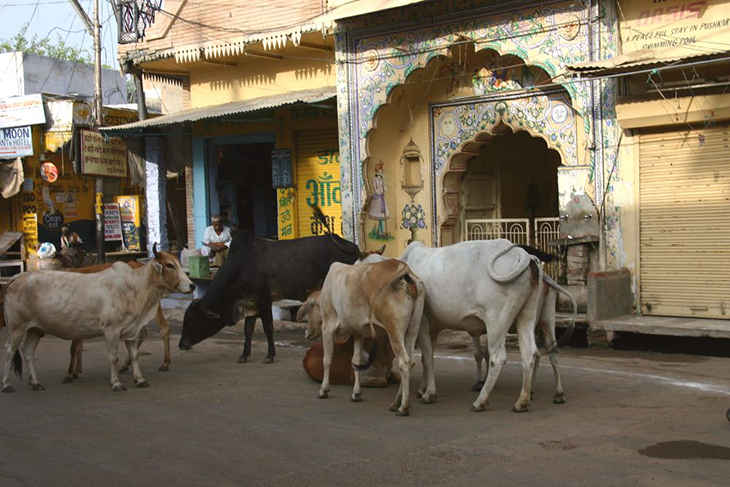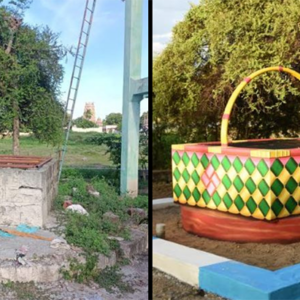
An ingenious Indian entrepreneur has pioneered a revolutionary zero-energy, zero-chemical wastewater treatment system, drawing inspiration from the rich traditions of the subcontinent, particularly from Hinduism’s revered animal, the cow.
In the bustling city of Bengaluru, a 54-year-old IT security specialist, having attained success and luxuries through a lengthy career, made a daring decision to stake everything he had achieved on addressing a seemingly mundane issue—a clogged drain.
Tharun Kumar embarked on a journey of imagination, seeking innovative methods to devise a sewage treatment system capable of producing high-quality water without relying on harmful chemicals. The infamous pollution of the nearby Varthur Lake served as a poignant reminder of the urgent need for transformative solutions in this domain.
In 2017, Kumar founded ECOSTP, drawing inspiration from the chambered stomach of the cow, a marvel of nature’s engineering.
The cow, like all ruminants, possesses a complex four-chamber stomach where anaerobic bacteria break down the ingested plants. Anaerobic metabolism, devoid of oxygen, is the key process at play—a concept familiar from high school biology or physical education classes.
Traditional wastewater treatment plants employ aerobic bacteria, reliant on oxygen, necessitating continuous energy consumption to sustain ventilation systems. Moreover, conventional methods often entail chemical usage and require constant human monitoring. Kumar’s innovative approach effectively addresses these limitations.
At the core of the ECOSTP septic tank lies a layer of cow dung, serving as the catalyst for bacterial activity. Gravity guides the wastewater through successive chambers, each facilitating distinct stages of purification. The water progresses through bacterial chambers before filtering through layers of sand and gravel. Finally, it undergoes a refining process in a chamber adorned with carefully selected vascular plants, which effectively remove suspended solids, pathogens, nitrogen, and phosphorus—elements vital for the nourishment of the plants.
Health inspectors have lauded the resulting water quality, deeming it suitable for both toilet use and gardening applications. Supported by a generous grant from Biomimicry Solutions, a US-based organization, ECOSTP has rapidly expanded its reach, serving 325 clients spanning 22 states in India. Notably, the unmanned and unpowered nature of ECOSTP’s septic tanks translates to substantial cost savings, sparing clients from the financial burden of traditional running expenses.
“My team and I measure ourselves by three metrics,” Kumar said when speaking to Ajay Sukumaran of India Today. “How much bad water did we convert to good water? How much power did we save compared to a normal STP? And how much coal we saved, because 70 percent of India’s electricity comes from coal.”
“We are proud to have reclaimed 2 billion liters of sewage so far without power or chemicals.”
ECOSTP is now seeing if it’s possible to identify anaerobic bacteria that can remove the harmful compounds of industrial effluent.
What are your thoughts? Please comment below and share this news!
True Activist / Report a typo


